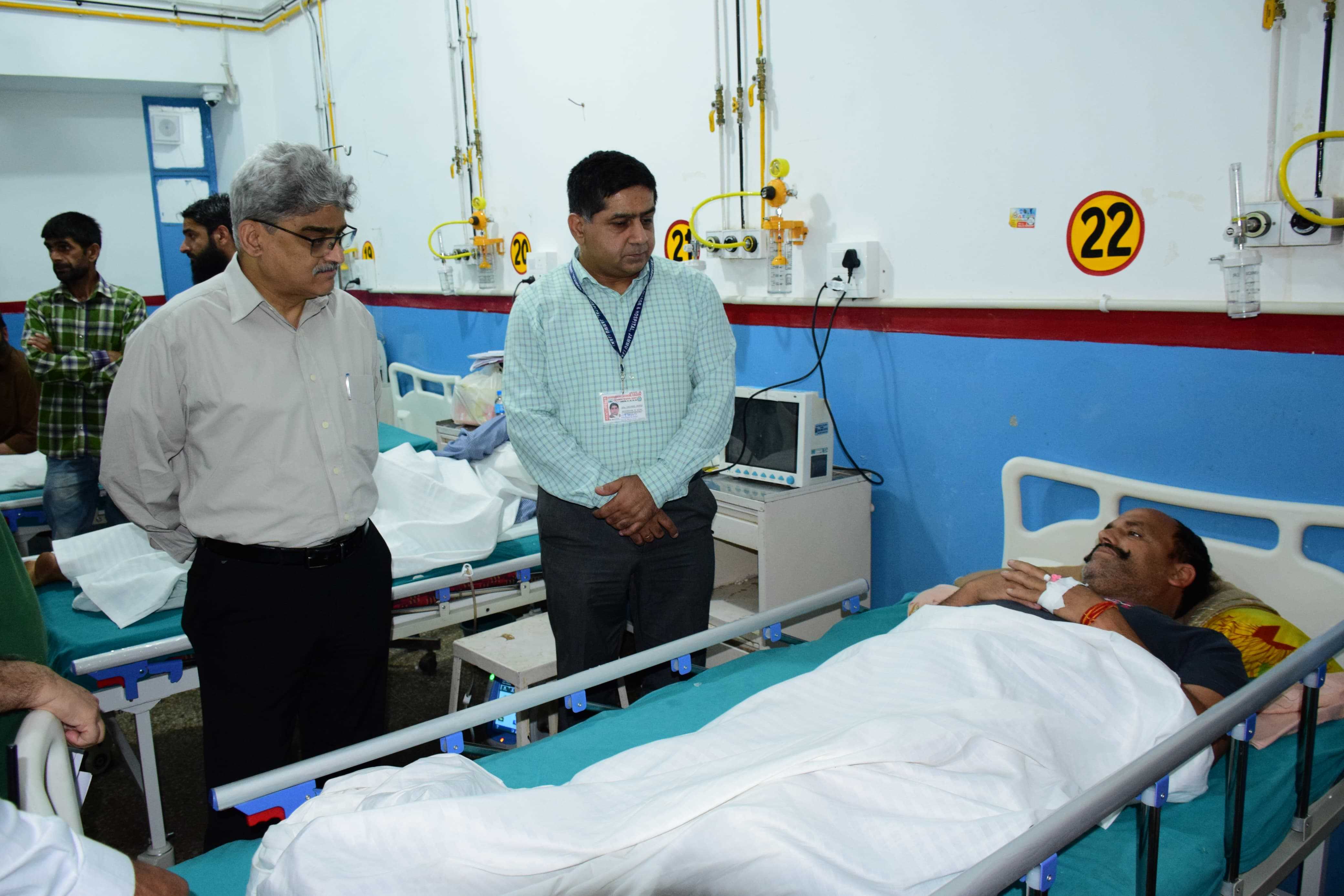
As the crescent moon is likely to appear in the sky today, heralding the beginning of Ramazan, Kashmir, like the rest of the Muslim world, prepares to embrace the holiest month of the Islamic calendar. This is a time of fasting, prayer, charity, and self-discipline—a period that transcends mere religious obligations and becomes a source of spiritual rejuvenation and communal solidarity. However, in Kashmir, Ramazan has always carried a deeper meaning, intertwined with our history, socio-political realities, and the unyielding resilience of its people. For centuries, Ramazan has been observed in Kashmir with immense devotion. The mornings begin with the soulful calls of Sahar Khwans—traditional wake-up callers—moving through narrow alleys, urging people to wake up for Suhoor, the pre-dawn meal. Mosques, adorned with glowing lights, become centers of heightened religious activities. Tarawih prayers echo across the valley, and families break their fasts with dates, kehwa, and traditional delicacies. Markets bustle with activity as people prepare for Eid, yet the month remains one of deep contemplation and prayer. However, the sacred atmosphere of Ramazan in Kashmir is often tempered by political uncertainty and security concerns. Over the years, violence has cast shadows over the spirit of the holy month. Fasting amid uncertainty, offering Tarawih prayers under the watchful eyes of security forces, and celebrating Eid with a sense of longing for peace—these have become realities for many Kashmiris. Yet, despite the challenges, faith remains unshaken. The economic aspect of Ramazan in Kashmir is also significant. The month boosts local businesses, especially those selling food, clothing, and essentials for Eid. However, in recent years, the economic hardships have made it difficult for many to afford even basic necessities. The spirit of charity and Zakat, fundamental aspects of Ramazan, become even more critical in such times, as Kashmiris extend help to those in need, reflecting the collective resilience and compassion that define Kashmir. Beyond the struggles, Ramazan remains a time of hope. It is a reminder of patience and perseverance, values that Kashmiris have embodied for decades. The holy month offers an opportunity for healing, dialogue, and reflection—both on a personal level and as a society. As Kashmir observes this sacred month, prayers for peace, stability, and justice resonate deeply, carried in the whispers of night prayers and the silent resilience of its people. This Ramazan, as Kashmir bows in prayer and fasts in devotion, the hope remains that the blessings of the month will bring a future of peace, where faith flourishes without fear, and where the essence of Ramazan—compassion, unity, and reflection—transcends all barriers.

As the crescent moon is likely to appear in the sky today, heralding the beginning of Ramazan, Kashmir, like the rest of the Muslim world, prepares to embrace the holiest month of the Islamic calendar. This is a time of fasting, prayer, charity, and self-discipline—a period that transcends mere religious obligations and becomes a source of spiritual rejuvenation and communal solidarity. However, in Kashmir, Ramazan has always carried a deeper meaning, intertwined with our history, socio-political realities, and the unyielding resilience of its people. For centuries, Ramazan has been observed in Kashmir with immense devotion. The mornings begin with the soulful calls of Sahar Khwans—traditional wake-up callers—moving through narrow alleys, urging people to wake up for Suhoor, the pre-dawn meal. Mosques, adorned with glowing lights, become centers of heightened religious activities. Tarawih prayers echo across the valley, and families break their fasts with dates, kehwa, and traditional delicacies. Markets bustle with activity as people prepare for Eid, yet the month remains one of deep contemplation and prayer. However, the sacred atmosphere of Ramazan in Kashmir is often tempered by political uncertainty and security concerns. Over the years, violence has cast shadows over the spirit of the holy month. Fasting amid uncertainty, offering Tarawih prayers under the watchful eyes of security forces, and celebrating Eid with a sense of longing for peace—these have become realities for many Kashmiris. Yet, despite the challenges, faith remains unshaken. The economic aspect of Ramazan in Kashmir is also significant. The month boosts local businesses, especially those selling food, clothing, and essentials for Eid. However, in recent years, the economic hardships have made it difficult for many to afford even basic necessities. The spirit of charity and Zakat, fundamental aspects of Ramazan, become even more critical in such times, as Kashmiris extend help to those in need, reflecting the collective resilience and compassion that define Kashmir. Beyond the struggles, Ramazan remains a time of hope. It is a reminder of patience and perseverance, values that Kashmiris have embodied for decades. The holy month offers an opportunity for healing, dialogue, and reflection—both on a personal level and as a society. As Kashmir observes this sacred month, prayers for peace, stability, and justice resonate deeply, carried in the whispers of night prayers and the silent resilience of its people. This Ramazan, as Kashmir bows in prayer and fasts in devotion, the hope remains that the blessings of the month will bring a future of peace, where faith flourishes without fear, and where the essence of Ramazan—compassion, unity, and reflection—transcends all barriers.
© Copyright 2023 brighterkashmir.com All Rights Reserved. Quantum Technologies